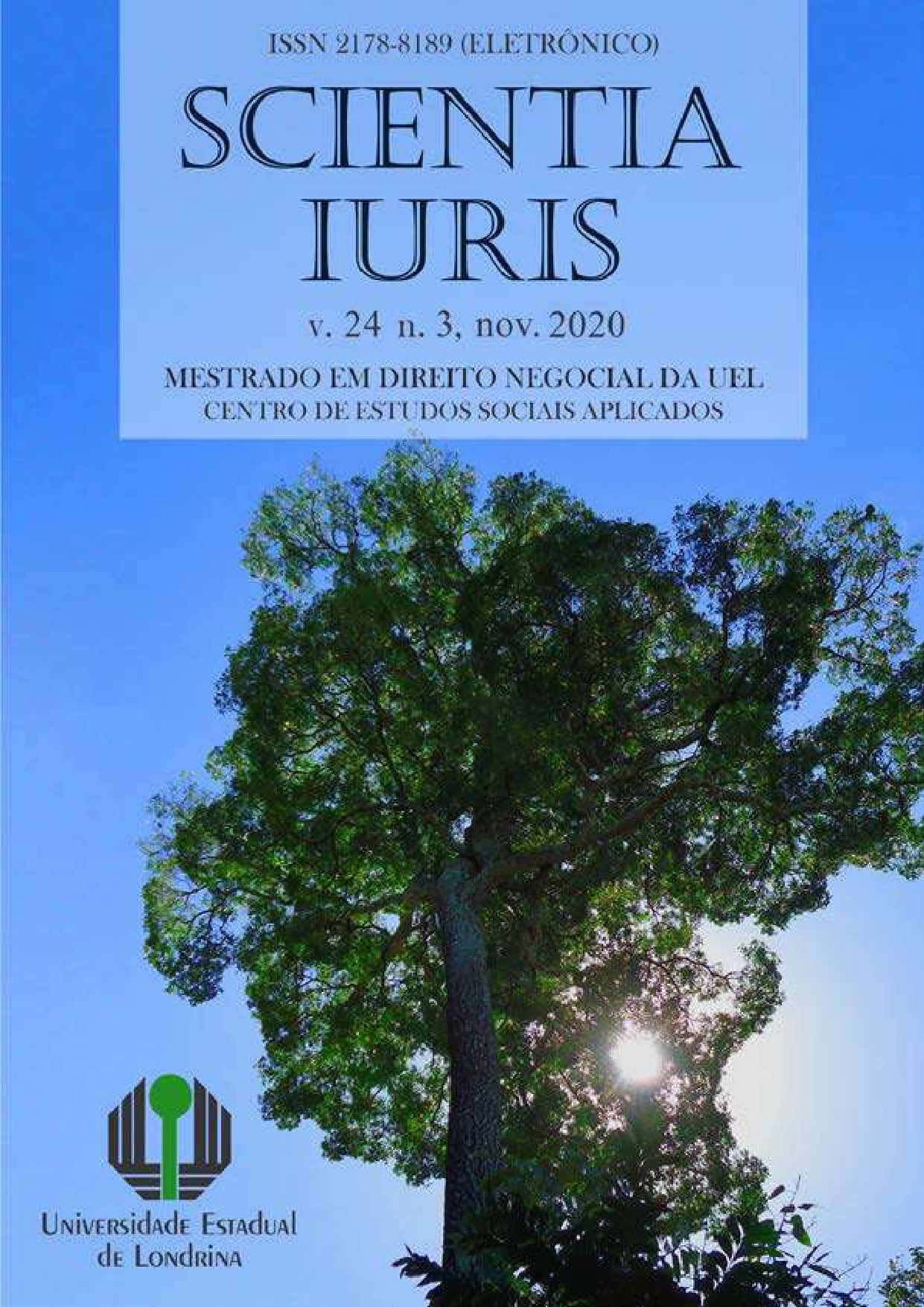Controversial aspects in passenger and luggage air transportation contracts
DOI:
https://doi.org/10.5433/2178-8189.2020v24n3p119Keywords:
Air Transportation. Passenger. Contracts.Abstract
The purpose of this article is to analyze passenger and luggage air transportation contracts, which are legislated by different sources that have many contradictions and antinomies between them, especially when regarding compensations for material and moral damages. Identifying which legislation applies to what case demands a considerable amount of effort from law professionals. Thus, the objective of this paper is to examine divergent doctrinal interpretations and solutions adopted by Brazilian courts. Although the object of study may not be new, the growing use of air travel from the most varied social classes imposes constant pressure on Brazilian law to consolidate fair solutions for both consumers and service providers. This study provides a theoretical, exploratory, and critical analysis from the logical deductive scientific method, which includes several methodological procedures, such as data collection, with emphasis on literature review, and legislative and jurisprudential bibliography. Furthermore, it is important to note, in the investigation, the harmonizing influence of the Constitution and its binding principles, especially regarding the principle of objective good faith.Downloads
Download data is not yet available.
Downloads
Published
2020-11-30
How to Cite
Paiano, D. B., & Furlan, A. C. (2020). Controversial aspects in passenger and luggage air transportation contracts. Scientia Iuris, 24(3), 119–142. https://doi.org/10.5433/2178-8189.2020v24n3p119
Issue
Section
Artigos
License
Copyright (c) 2022 Scientia Iuris

This work is licensed under a Creative Commons Attribution 4.0 International License.
The journal reserves the right to modify, in the original text of the submitted article, normative, spelling and grammatical mistakes in order to maintain the cultured standard of language and the credibility of the journal. The journal will respect the authors' writing style. Changes, corrections or suggestions of conceptual order will be sent to the authors, when necessary. In such cases, the articles will be re-examined. The final exams will not be sent to the authors. The published works become the property of the journal, in other words, its total or partial reprinting is subject to the express authorization of the journal. In all subsequent citations, the original source of publication shall be cited and in the case of Photographic Speeches, shall be approved by the original author. The opinions expressed by the authors of the journal's articles are of their sole responsibility.

















